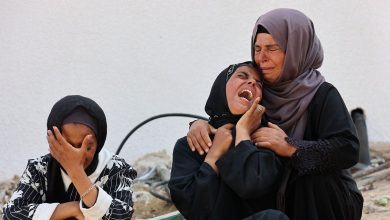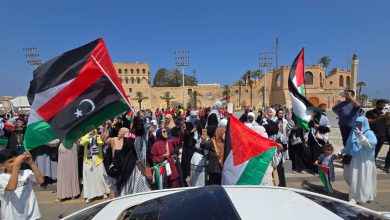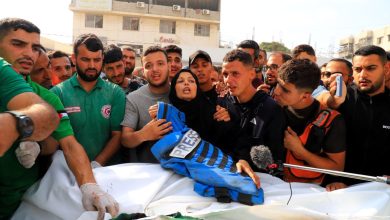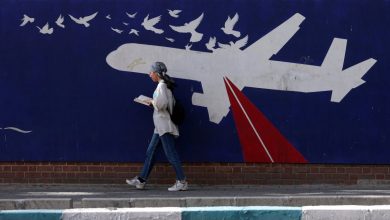Gaza mother’s heartbreak as she fights to reunite with her triplets
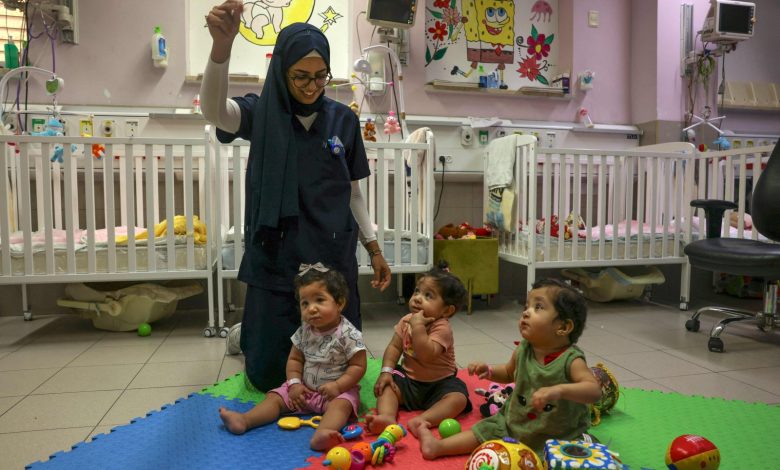
Ahead of her triplets’ first birthday, Hanane Bayouk, a Gaza native who gave birth to them in Jerusalem before the latest conflict, has seen her children only once and fears she may “die without them.”
The 26-year-old was forced to return to Palestinian territory alone after giving birth to Najoua, Nour and Najmeh on Aug. 24, 2023, because her Israeli travel permit had expired.
Bayouk received a permit to exit Gaza and give birth at Al-Maqased Hospital in annexed East Jerusalem after seven years of painful IVF procedures.
She glimpsed her children in their incubators for “barely an hour and a half” before driving back to Gaza when her permit expired and the hospital told her to leave.
Bayouk was supposed to return in early October after her daughters had spent several weeks in incubators, which were in short supply in Gaza hospitals even before the Palestinian-Israeli conflict erupted.
Far from war
Two days after she applied for a new exit permit on Oct. 5, Hamas breached the Erez terminal, the only entry point from Gaza into Israel.
Once in Israel, the Palestinian group carried out an incursion that left 1,198 people dead.
However, tragedy unfolded as Israel’s retaliatory military campaign resulted in the unprecedented death of 40,265 Palestinians in Gaza, according to the health ministry in the Hamas-run territory.
The U.N. rights office says most of the dead have been women and children.
Like Bayouk, Heba Idriss found herself surrounded by war and unable to return to Jerusalem to get her only daughter, Saida, born prematurely at Al-Maqased two months earlier.
The 27-year-old had hoped to bring her newborn back to her husband Saleh at their home in Shujaiya in the northern Gaza Strip.
Instead, the couple has been displaced nine times by Israeli airstrikes or evacuation orders, and her husband Saleh has only seen pictures of Saida.
“I want to see my daughter. I suffer so much from being separated from her,” she said in tears.
Hanane Bayouk too has been displaced and now lives in a camp for displaced persons in the south, sharing a tent with seven of her in-laws.
“It drives me crazy. It took me so long to get pregnant, and now I’m crying all the time,” she told AFP on one of the rare days she was able to get through on Gaza’s struggling phone network.
“Sometimes, I think I’d like for my daughters to return to Gaza before I die because I have never kissed them, but then I get a hold of myself and tell myself it’s better for them to be safe far from the war,” she said.
Back at Al-Maqased, neonatal intensive care unit director Hatem Khammach says that under normal circumstances, there would not have been space to keep Nour, Najmeh and Najoua for so long.
“I cry every time”
But the number of births at the hospital has fallen sharply as Israel has stopped issuing travel permits to mothers from Gaza and reduced those given to mothers from the occupied West Bank.
With more checkpoints closed more often, even those with permits struggle to access specialist treatment in Jerusalem.
“Before the war, we had seven or eight Gaza babies in our department, which can host 30 at a time,” Khammach said. “Since October, none have come, and many sick people from the West Bank can’t reach us.”
But the hospital’s health workers stay busy, including those who call Bayouk to let her speak on the phone to her three daughters.
“My husband can’t do it. I do it and I cry every time we hang up. I’m afraid my daughters will grow up without knowing me,” Bayouk said.



